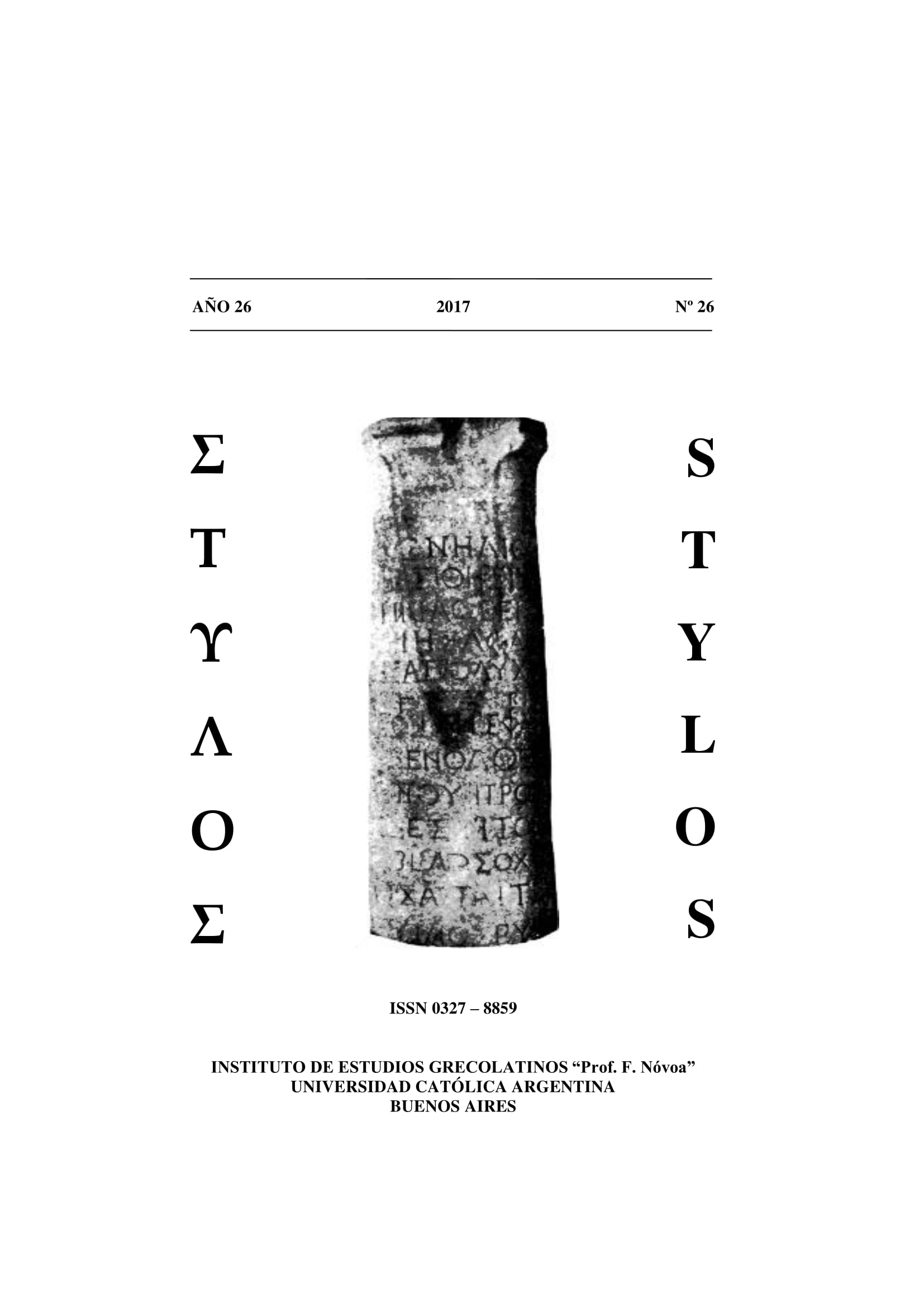LA INEFABILIDAD DEL DOLOR EN TRISTIA
Keywords:
ineffability, exile, Ovid, clichéAbstract
Writing from the exile is, for Ovid, a sincere relief of his sufferings. In Tristia he makes use of the most characteristic features of elegiac genre in order to relate his own experience of pain and for this purpose he also employs autobiography and epistle. He declares in his work that the exile causes him suffering equivalent to death. We´re especially interested in one passage of the text (Trist. 1.5.57-84) in which the author expresses, using the cliché of the hundred mouths, his incompetence for the task of talking about his sufferings. This cliché, appearing in works of Homer, Virgil and other Latin writers, has been recorded by Curtius within the ‘topoi of the unspeakable’. In this brief study we will observe, based on the analysis of this passage and its context inside Tristia, how the universe of the ineffable is defined and how things that cannot be expressed are expressed by Ovid in this work.Downloads
Download data is not yet available.
Downloads
Published
06/27/2019
How to Cite
Rossi, M. A. (2019). LA INEFABILIDAD DEL DOLOR EN TRISTIA. Stylos, 26(26), 210–222. Retrieved from https://erevistas.uca.edu.ar/index.php/STY/article/view/2028
Issue
Section
Artículos
License






